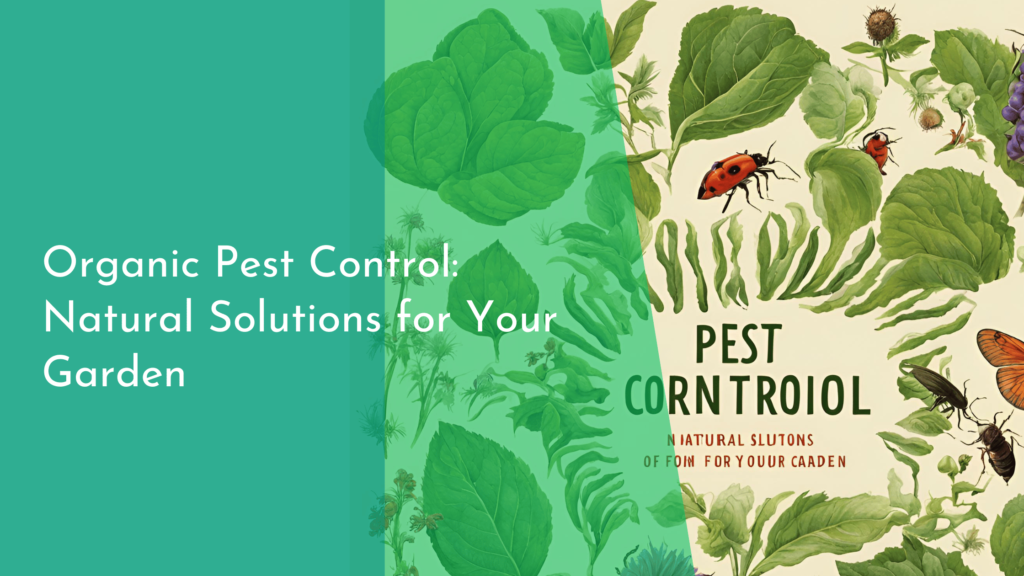The Role of Birds in Pest Control: How to Attract Them to Your Garden
Birds are more than just delightful characters flitting around your garden; they play a pivotal role in maintaining the delicate balance of our ecosystems. Often unnoticed, these feathered creatures are nature’s very own pest control agents, helping to manage insect populations and contribute to the health of your plants. In this article, we’ll delve into the vital role that birds play in pest control, explore the best species to invite into your garden, and provide practical tips on making your outdoor space a bird-friendly haven. Get ready to embrace the vibrant sounds and sights of birds while benefiting from their natural tendencies to keep pests at bay!
Understanding the Benefits of Birds in Your Garden Ecosystem
Birds are pivotal in regulating pest populations that can wreak havoc on your garden. Many bird species are voracious insect-eaters, targeting pests such as aphids, caterpillars, and beetles. By keeping these populations in check, birds help protect not only the aesthetics of your garden but also the health of your plants. Moreover, they also assist in pollination and seed dispersal, further enriching your garden ecosystem and promoting biodiversity.
In addition to their pest control abilities, birds contribute to a balanced garden environment through their droppings, which serve as natural fertilizers. This nutrient-rich waste helps maintain the soils, enriching them and promoting healthy plant growth. Thus, attracting birds to your garden not only reduces pest-related problems but also enhances soil fertility and overall plant vitality—making your garden a more vibrant and lush space.
Top Bird Species for Effective Pest Control and Their Habits
When looking to attract birds for pest control, it’s essential to familiarize yourself with species known for their insect-eating habits. For instance, the Eastern Bluebird is a favorite garden visitor that feeds on various insects, including grasshoppers and beetles. They prefer open areas with scattered trees or shrubs, making them perfect candidates for gardens that incorporate some variety in plant heights and types.
Another excellent species to consider is the American Robin. Known for their early morning songs, robins are productive in the garden, munching on worms, grubs, and other insects. They are highly adaptable and can thrive in various environments, from urban spaces to suburban backyards. Providing nest boxes and a source of fresh fruit can encourage both bluebirds and robins to take up residence in your garden.
Creating a Bird-Friendly Environment: Tips and Tricks
To cultivate a bird-friendly environment, the first step is to ensure an adequate supply of food, water, and shelter. Setting up bird feeders filled with seeds, suet, or mealworms can be incredibly inviting to many species. It’s also crucial to maintain a consistent supply of fresh water during hotter months, as birds need it for drinking and bathing. A birdbath, complete with shallow edges, can attract a variety of birds and motivate them to frequent your garden.
Planting native flora is another effective strategy for creating a welcoming habitat. Native plants provide essential food and nesting materials for birds while also attracting insects that birds prey upon. Consider incorporating berry-producing shrubs and nectar-rich flowers, which will draw in not only birds but other beneficial wildlife too. A diverse landscape featuring varying heights allows birds to perch, search for food, and feel safe in their surroundings.
Enjoy the Show: Watching Birds Help Your Garden Thrive
With the right conditions in place, you’ll soon witness the beauty of birds enhancing your garden’s ecosystem. From their charming songs to their acrobatic displays in the air, observing them while they assist in pest control can be an engaging and joyful experience. Equipped with binoculars and a journal, you can make a fun pastime out of identifying the different species that frequent your garden, thereby cultivating a stronger connection to nature.
Additionally, watching these feathered friends in action can inspire you to learn more about them and even share your findings with friends and family. This newfound passion can transform your gardening efforts into more than just a chore; it becomes a shared experience that brings life, color, and energy to your space. As you nurture and expand your garden, remember that the delicate balance maintained by birds will continually reward your efforts, creating a thriving sanctuary for both you and your avian allies.
Incorporating birds into your garden is a delightful and beneficial venture. By understanding their vital role in pest control, identifying the right species, and creating a bird-friendly habitat, you can enhance both the beauty and health of your outdoor space. With a bit of patience and care, you’ll find that your garden transforms into a vibrant ecosystem, teeming with life and joyful nature sounds all around. So grab those bird feeders, plant some native plants, and sit back to enjoy the incredible show of nature at work right in your own backyard!

